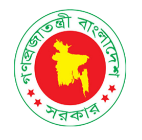Financial inclusion means that all individuals and businesses have access to a full range of useful and affordable financial products and services that meet their needs – transactions, payments, savings, credit, and insurance – and are delivered responsibly and sustainably1. Bangladesh is gradually making progress in financial inclusion indicators set for measuring the Sustainable Development Goals (SDGs) according to the SDG Progress Report 2018 2(Ref). A range of public and private initiatives made this possible; while the government took imitative like ‘One House, One Farm’, the NGOs excelled in covering rural households through microfinance. Other initiatives taken by the Bangladesh government to promote financial inclusion of people that cannot access formal financial institutions include – introducing mobile financial services, requiring banks to establish 50 percent of their branches in rural areas, starting agent banking, and opening a 0.12 USD deposit bank account by farmers3. Bangladesh is also preparing the National Financial Inclusion Strategy for accelerating the progress of financial inclusion in the country. Despite these initiatives, many people lack access to finance, and even if they do the products widely offered by many financial institutions do not factor in their situation.
July 28, 2020


